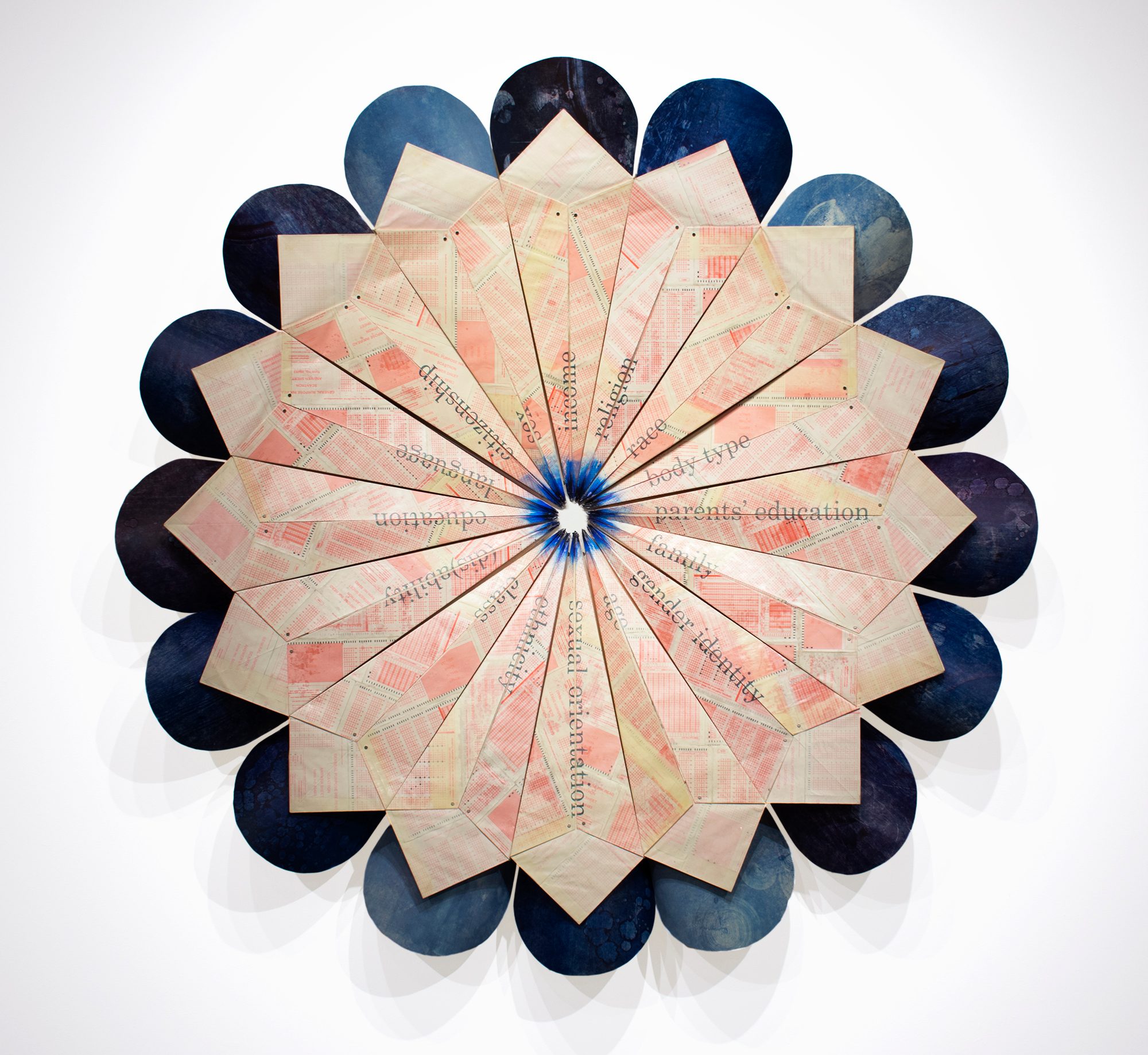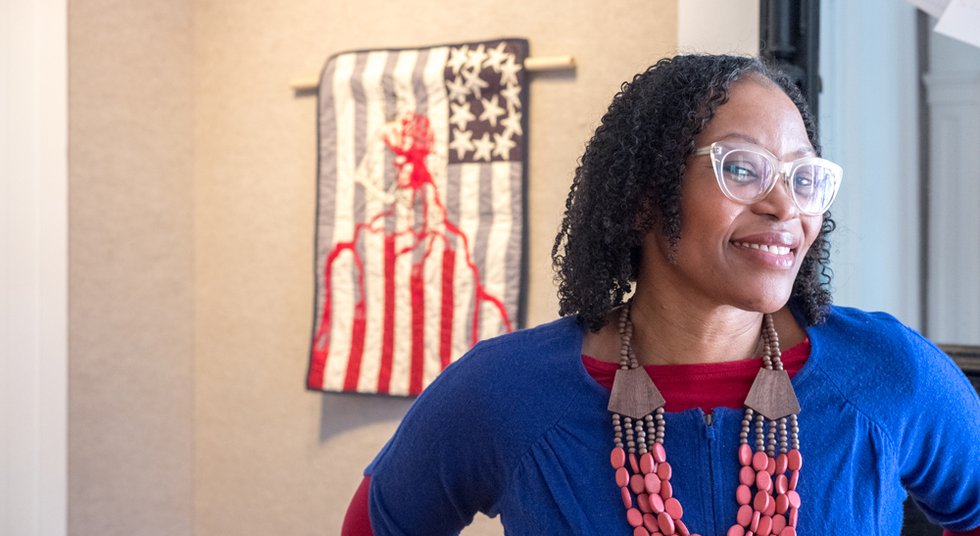The Center for the Study of Race and Ethnicity in America at Brown University is excited to announce its Spring 2024 cohort of Artistic Practitioner Fellows. Supported by a generous grant from the Mellon Foundation, the Practitioner Fellowship aims to develop artistic works that explore the intersections, aesthetics, and lived experiences contained within concepts of race, ethnicity, and indigeneity. Read on to learn more about each of our new Fellows and their ongoing projects.
Marc Anthony Richardson is an artist and novelist who specializes in visceral, avant-garde fiction and poetry. Year of the Rat, a work of autofiction, won an American Book Award and a Ronald Sukenick Innovative Fiction Prize. Messiahs, a speculative novel, was a fiction finalist for the Big Other Book Award. The Serpent Will Eat Whatever is in the Belly of the Beast, a novel poem, is forthcoming from Dalkey Archive Press. It won a Creative Capital Award, and a Sachs Program Grant for Arts Innovation. He has received grants and fellowships from PEN America, Hurston/Wright Foundation, and many others. He has held residencies from the Vermont Studio Center, Art Omi, and Rhodes University in South Africa. He teaches creative writing at the University of Pennsylvania.
Nkiruka Oparah is an artist, poet, and designer who works with materials at hand to create works on paper, installations, wearables, and sculpture. Their process-based approach synthesizes digital collage, mark-making, animation, textiles, and experimental printmaking techniques to examine themes of intimacy, relationships to ritual, and matters of the spirit. Through layering and the constant recontextualization of cultural and embodied memories, discarded materials, as well as time-based experiments, they seek to make and unmake self-portraiture as a form.

Nkiruka Oparah - GOAL (body knowledge) - Medium unknown, 2022
Grace Talusan is a Lecturer in the Nonfiction Writing Program in the Department of English at Brown University. Her memoir, The Body Papers, won the Restless Books Prize for New Immigrant Writing and the Massachusetts Book Award in Nonfiction. She earned an MFA from the University of California, Irvine and taught writing at the University of Oregon, Tufts University, and Brandeis University, where she was the Fannie Hurst Writer-in-Residence. Her writing has been supported by the National Endowment for the Arts, the Fulbright, US Artists, the Brother Thomas Fund, the Massachusetts Cultural Council, and residencies at MASS MoCA, Vermont Studio Center, and Hedgebrook.
Jade Hoyer is an artist whose creative work addresses social issues in media like printmaking and hand papermaking. Through satirical inspection of quotidian materials and objects, her work wryly addresses questions of gender, multiracial identity, and social privilege. Hoyer has been recognized by organizations including the Windgate Foundation, the Minnesota State Arts Board, and the Cultural Center of the Philippines. Her work is part of collections including the Museum at Texas Tech University’s Artist Printmaker Research Collection, the Association of Pinoy Printmakers, Philippines, and the Museu da Gravura de Curitiba, Brazil. She is based in Minnesota, where she is an Assistant Professor of Art at Carleton College.

Jade Hoyer - Privilege Flower - Scantron forms, monoprint, silkscreen, beeswax, 2016
Lisa Biggs is an actress, playwright, and performance scholar originally from the Southside of Chicago. She is the author of The Healing Stage: Black Women, Incarceration, and the Art of Transformation (2022) and currently serves as the John Atwater and Diana Nelson Assistant Professor of the Arts and Africana Studies at Brown University. As an artist and scholar, Dr. Biggs is interested in the theory, practice, and impact of theater for social change, particularly the role of the performing arts in movements for social justice.
Macarena Gómez-Barris is a writer and scholar with a focus on the decolonial environmental humanities, authoritarianism and extractivism, queer Latinx epistemes, media environments, racial ecologies, cultural theory and artistic practice. Her forthcoming book, At the Sea’s Edge, (Duke University Press) considers colonial oceanic transits and the generative space between land and sea. She is on the Social Text Collective, co-Director of the Queer Aqui Project at Columbia University, and on the Executive Editor Board of the Journal of Lesbian and Gay Studies (GLQ). She received the Pratt Institute Research Recognition Award (2021-2022) and the University of California, Santa Cruz Distinguished Alumni Award (2021-2022). She is the author of dozens of essays and curatorial events. She was founder and director of Global South Center at the Pratt Institute.
Kim Dixon's artistic approach draws from her experiences as an African American woman and a background as an archivist/historian. Drawing and sewing are integral to her work, which combines symbolism from the past with academic critique of modern American life. Kim uses fiber arts deliberately to convey layered ideas and explore history's cyclical nature. While whimsical, Kim’s style carries elements of "magical realism." Her work challenges stereotypes, particularly those surrounding needlework's domesticity. Through cross-stitching, embroidery, and quilting, Kim deconstructs and explores the cultural experiences of African Americans. Fiber arts powerfully convey messages and disarm viewers, invoking nostalgia while prompting deeper reflection. Work from Dixon’s latest “This is America” series has recently been exhibited at the Living Arts & Science Center in Lexington, KY as part of Reflections: African American Voices on the Past and Present.

Kim Dixon pictured with This Land is Made for You and Me, part of Dixon’s “This is America” series. Work comprised of hand-sewn embroidery. Photo by Mick Jeffries.
